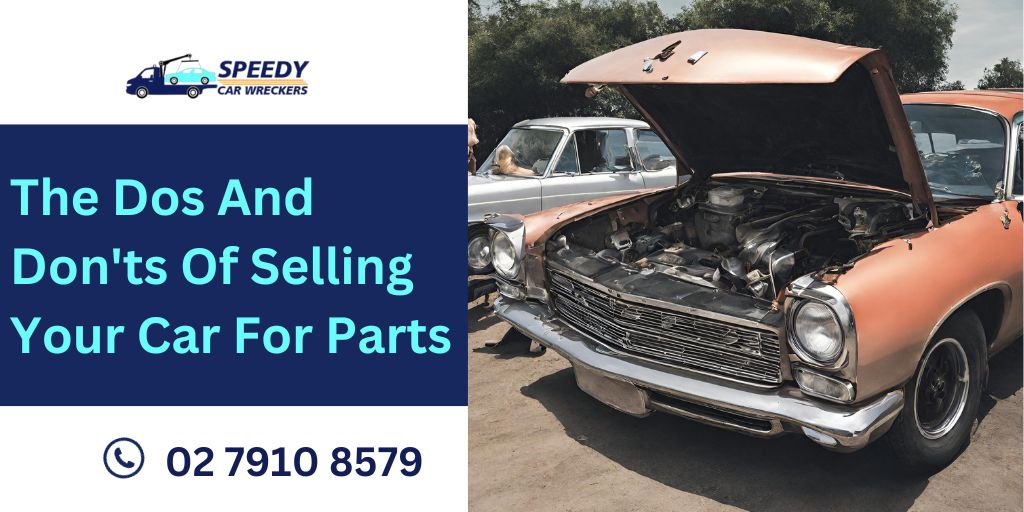Deciding the fate of an old vehicle can be a conundrum. While some might consider trade-ins or private sales, there’s a niche yet profitable avenue to explore: selling a car for its parts to car wreckers Sydney. This approach, when done correctly, can maximize the value of an aging vehicle while supporting sustainability. However, venturing into part sales requires knowledge and strategy, and this guide aims to shed light on the dos, don’ts, and best practices of this process.
Why Sell Your Car for Parts?
When a car reaches the end of its functional life, it doesn’t mean its value has entirely diminished. Many components remain valuable, from the engine parts to the onboard electronics. Selling a car for parts to car wreckers Sydney can often fetch more than selling it as a whole, especially if specific components are in high demand. Additionally, car wreckers Sydney follows an environmentally friendly approach for parts dismantling and recycling. Instead of a car rusting away in a junkyard, its parts find new life in other vehicles, reducing the demand for new manufacturing.
Dos of Selling Your Car for Parts
Here are some key steps to ensure success. First, research is paramount; familiarize yourself with the market demand for specific parts and set competitive prices. Always have your documentation in order, from titles to service records, as this builds trust with potential buyers.
If you’re unsure about the condition of certain components, partner with professionals; mechanics can provide insights into the usability of parts. Effective advertising is vital.
Utilize online platforms, especially those tailored to car enthusiasts or specific vehicle models. Lastly, transparency is crucial. Provide accurate descriptions of each part’s condition, and be upfront about any wear or tear.
Don’ts of Selling Your Car for Parts
Avoid common pitfalls that can hamper your part-selling experience. Overpricing, driven by emotional attachment, can deter potential buyers; always base prices on current market values.
Safety should never be compromised; when dismantling parts, ensure you don’t inadvertently release harmful substances. Familiarize yourself with local regulations to avoid skipping legal steps – in some jurisdictions, you might need to inform authorities when a car is no longer roadworthy.
Avoid selling unethically; never sell parts that are unsafe or faulty without clear disclosures. And resist making hasty decisions; each part should be assessed and priced with care, even if the process feels tedious.
Tips for Effective Part Sales
Boost your sales potential with some tried-and-true strategies. Quality photography can enhance online listings; clear, well-lit images of parts can draw in potential buyers.
If shipping parts, ensure you have reliable packaging methods to prevent damage in transit. And remember, communication is key; promptly addressing buyer queries and maintaining open dialogues can foster trust and expedite sales.
stay updated on market trends; understanding when certain parts are in demand, especially due to seasonal changes or market shifts, can allow for strategic pricing and timely sales promotions.
Potential Challenges
While selling car parts to Sydney car wreckers can be profitable, it’s not without challenges. Some parts might have limited demand, languishing unsold. Storage can become an issue, especially for bulkier components. And then there’s the challenge of dismantling; without the right tools or expertise, extracting parts can be daunting. However, for every challenge, there’s a solution.
Unsold parts can be recycled, proper storage solutions can be sought, and professional services can assist in dismantling. Additionally, dealing with returns or complaints can be time-consuming, particularly if a part doesn’t fit a buyer’s needs as anticipated.
Shipping challenges, such as increased costs or potential damages during transit, can also pose significant hurdles. There’s also the responsibility of ensuring all sales are compliant with local regulations and laws, which might require additional paperwork or certifications.
Conclusion
Selling your car for parts can be both an environmentally friendly and economically wise decision. However, success hinges on a strategic approach, keen awareness of the market, and ethical practices. By understanding the dos and don’ts and armed with effective sales tips, car owners can navigate the intricacies of part sales, ensuring they extract maximum value from their vehicles while contributing to sustainable automotive practices.

